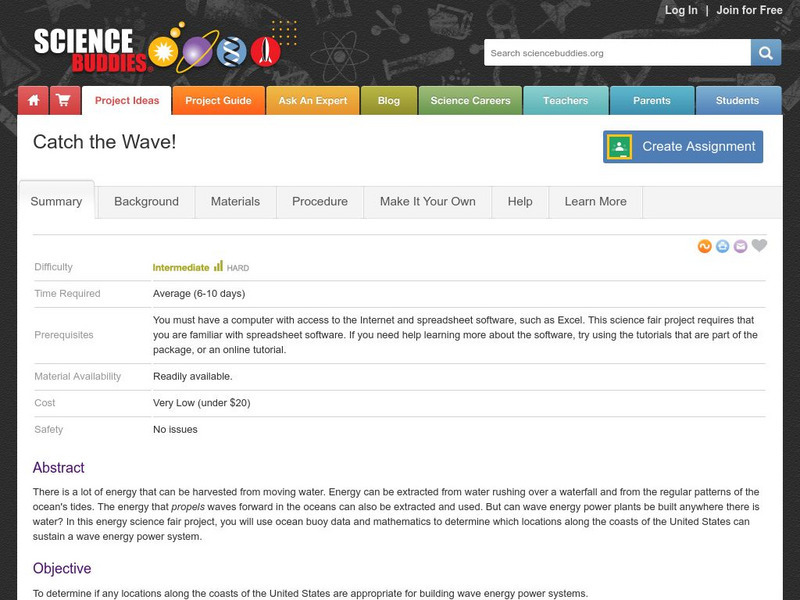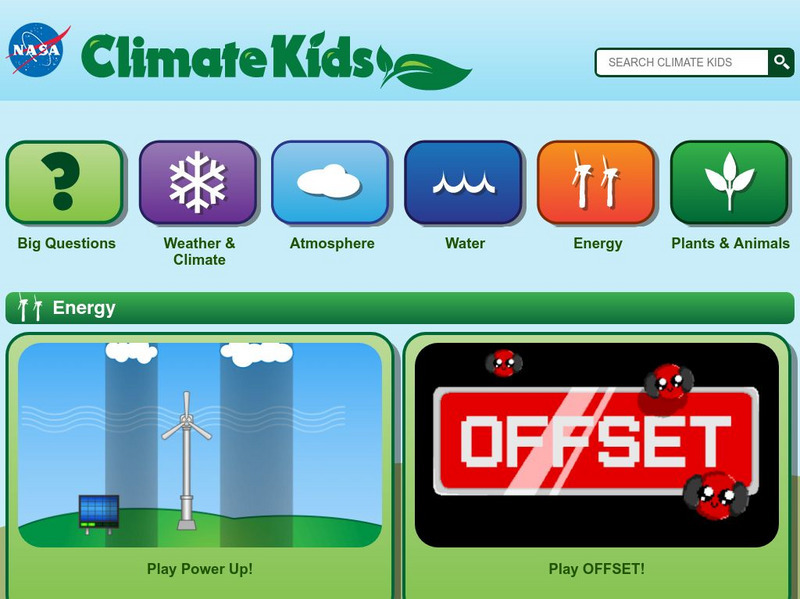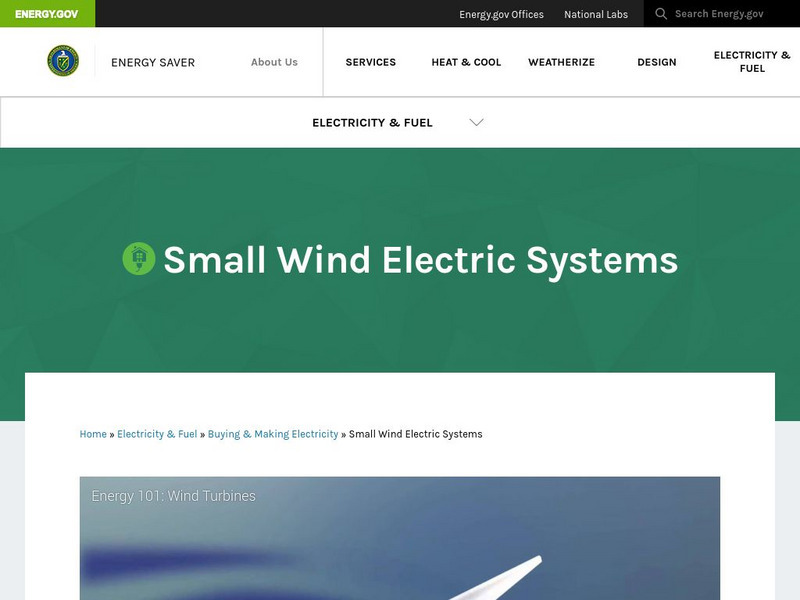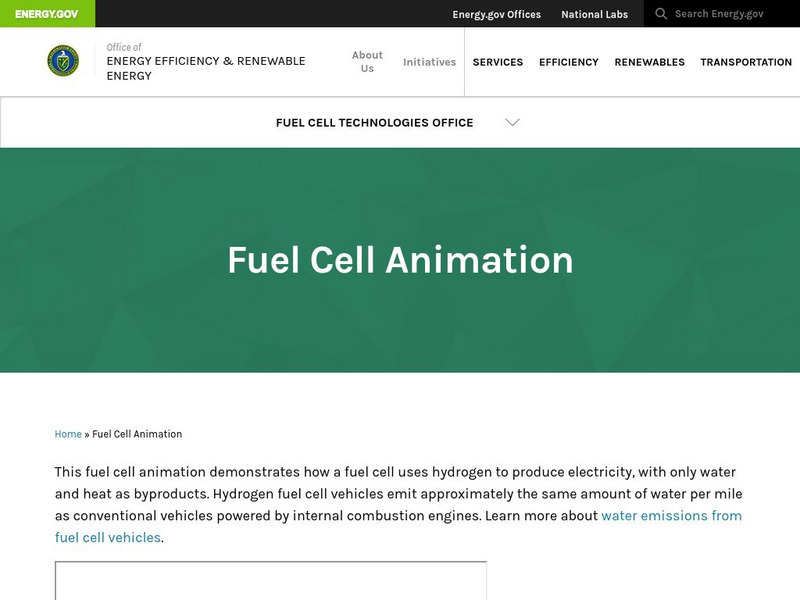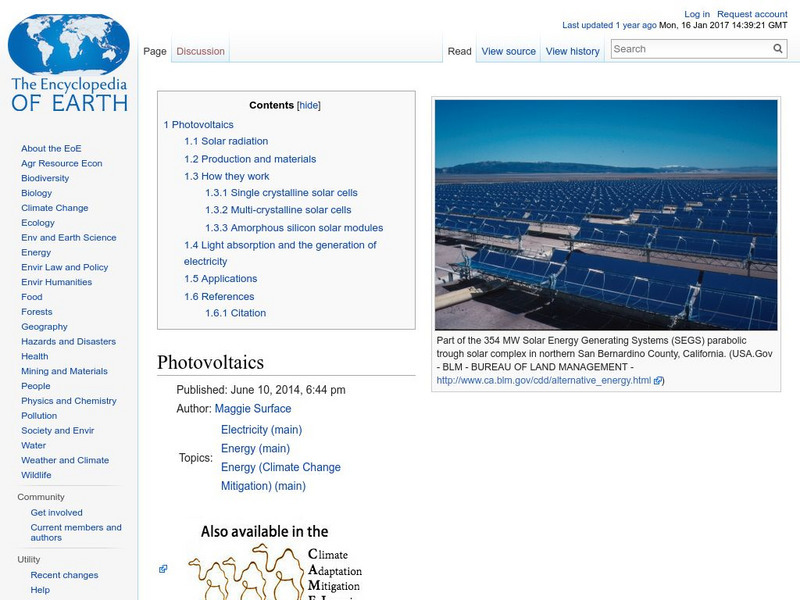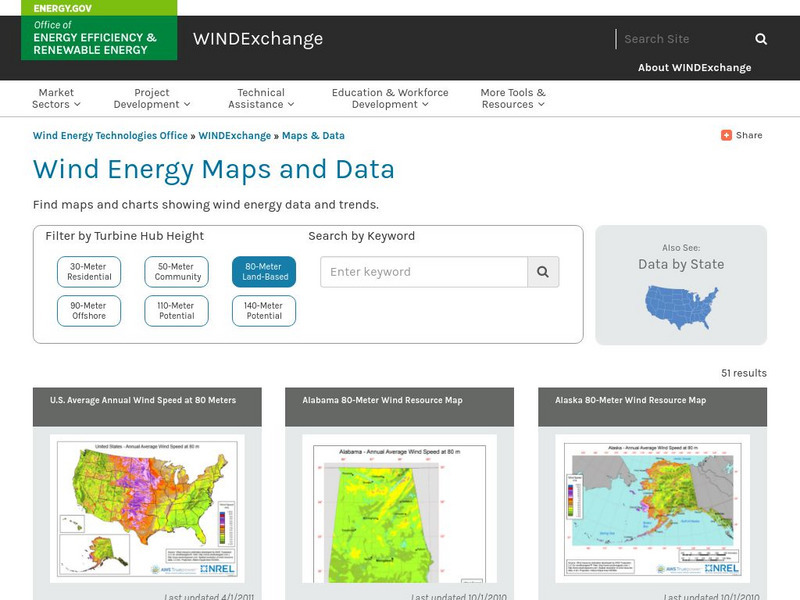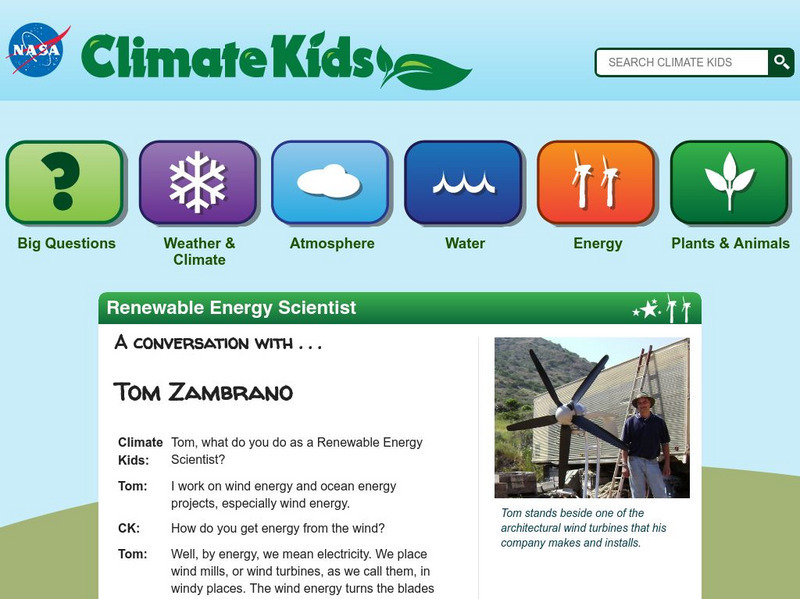Science Buddies
Science Buddies: Catch the Wave!
In this energy science fair project, the student will use ocean buoy data to determine if any locations along the coasts of the United States are appropriate for building wave energy power systems.
NASA
Nasa: Climate Kids: Energy
Explore energy resources through stories, case studies, activities, and examples.
E-learning for Kids
E Learning for Kids: Science: Cruise Ship: What Sort of Energy Is Provided by Water?
Shana is learning about water. Help her discover all the different ways water can provide us with energy.
E-learning for Kids
E Learning for Kids: Science: Cyprus Dancing School: What Sort of Energy Is Provided by the Wind?
Chara is finding out a lot about the wind and how it can provide energy to us. Join her in Cyprus to learn along with her.
Science4Fun
Science4 Fun: Biomass Energy
What is biomass? Learn about the different types of biomass energy, how it is released, and the advantages and disadvantages of biomass.
PBS
Pbs Nova: The Big Energy Gamble
While most people believe that global warming is a reality, Marlo Lewis, Jr. is a skeptic. Lewis is with the Competitive Enterprise Institute in Washington, D.C. In this interview, he questions the California initiative to lower...
US Department of Energy
U.s. Department of Energy: Energy Basics: Renewable Energy: Biomass
Find out about the renewable energy resource using biomass technologies. Learn about the three main types of biomass and how the stored energy from the sun is captured for use.
Other
Rew: Us Energy Department Funds Low Carbon Jet Fuel Demonstration Plant
An approval from the U.S. Energy Department will financially allow further development and testing of low-carbon fuel.
US Department of Energy
U.s. Department of Energy: Water Power Program: Types of Hydropower Plants
Learn about the three types of hydroelectric power plants used to capture the energy from water at a hydropower dam site.
US Department of Energy
U.s. Department of Energy: Energy Savers: Small Wind Electric Systems
An interactive animation teaching how a wind turbine works to produce electricity.
US Department of Energy
U.s. Department of Energy: Fuel Cell Technologies Program: Fuel Cell Animation
A series of animated illustrations show how a polymer electrolyte membrane fuel cell works. PEM fuel cells are the most common type used in flex-fuel vehicles.
Science Buddies
Science Buddies: Cold Room? Heat It Up With a Homemade Solar Air Heater
Humans need food, water, and warm shelter to survive. But a lot of humans depend on fossil fuels to supply gas and electricity to heat our homes. But burning fossil fuels to create energy is harmful to the environment. In this science...
US Department of Energy
Us Department of Energy: Creating Biofuel and Mitigating Waste [Pdf]
A 36-page lesson unit where students create biodiesel from waste and clean vegetable oil, analyze the biodiesel fuel and purify it, as well as create soap from glycerin. They are also asked to prepare a presentation on their work with...
Encyclopedia of Earth
Encyclopedia of Earth: Photovoltaics
Article explaining what photovoltaic cells are, their role in solar energy, how they work, how electricity is produced, and applications of this technology. (Published: April 24, 2010)
US Department of Energy
U.s. Department of Energy: Wind Program: Wind Powering America: Maps
An interactive map of the United States that gives information about each state's wind power potential.
National Academies of Sciences, Engineering, and Medicine
The National Academies: Emerging Technologies: Hydrogen Fuel Cells
The advantages and disadvantages of hydrogen fuel cell technology as a source for energy production are outlined. There is still much to be done in research and development before this energy source can be marketed widely.
Other
Florida Dept. Of Education: Conservation of Renewable and Nonrenewable Resources
In this learning module, students learn to differentiate between renewable and nonrenewable resources, and identify resources that fit into each category. It explains the environmental effects of using nonrenewable resources, such as...
Other
Abc Da Energia
ABC Da Energia describes the many ways that energy can be obtained and conserved. It explains different sources of energy, how each works, and how energy can be saved in our daily lives. Interactive energy-saving activities and games...
Energy4Me
Energy4me: Energy Technology
Learn about the many sources of energy used around the world.
Discovery Education
Discovery Education: Grade 3 5 Module: Designed for Efficiency [Pdf]
In this 3-5 teaching module, students conduct experiments, explore with online interactives, and watch videos that help them understand how vehicles work. Then, students demonstrate their understanding by designing energy efficient...
Other
Carbon Footprint: Co2 Reduction: Green Energy
Carbon Footprint, Ltd. offers an overview of renewable energy and its use will help reduce your carbon footprint.
NASA
Nasa: Climate Kids: Renewable Energy Scientist
A conversation with Tom Zambrano, a scientist who studies wind and ocean energy.
Energy4Me
Energy4me: Wind Energy
Learn about the alternative energy source, wind energy. Find out the history of this renewable resource and how it works to convert wind energy into electricity.
US Energy Information Administration
U.s. Eia Energy Kids: Timelines: Geothermal
Timeline of key milestones in the use of geothermal as a source of energy, starting with the first geothermal power plant built in Italy, in 1904.
Other popular searches
- Alternative Energy Worksheet
- Alternative Energy Forms
- Alternative Energy Resources
- Exploring Alternative Energy
- Science Alternative Energy
- Alternative Forms of Energy
- Alternative Energy Models
- Alternative Energy Reading
- Alternative Fuels for Cars
- Alternative Energy Programs
- Alternative Energy Labs
- Alternative Fuels Methanol


